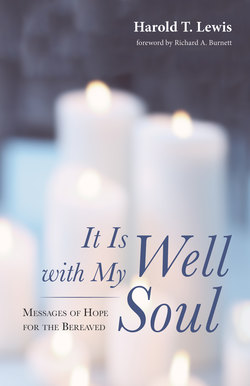Читать книгу It Is Well with My Soul - Harold T. Lewis - Страница 12
На сайте Литреса книга снята с продажи.
“Wear your life like a loose garment.”
ОглавлениеFRANKLIN DELTON TURNER, Bishop (1933–2013)
Preached in Philadelphia Episcopal Cathedral 11 January 2014
Let not your hearts be troubled. (John 14:1)
I first met Frank Turner forty years ago, at the General Convention in Louisville. I was looking for a job, and Frank was about to have draped over his shoulders Tollie Caution’s venerable mantle as “Deputy for Colored Work,” or, as it had been restyled, Staff Officer for Black Ministries. Frank and I had countless conversations over the years, but two stand out. The first was a talk we had as I was about to succeed him at 815, in which he gave me some advice which, admittedly, I seldom heeded: “Harold,” he said, “you don’t always have to have an opinion.” The second was a conversation we had on one of the occasions that Frank was running for bishop. It took place during the period of limbo between the walkabouts (the dignified name we have given to what used to be known in the trade as the “dog and pony show”) and the election itself. I pummeled Frank with a barrage of questions: How did it go? Were there any surprise questions? What do you think your chances are? Do you think the people in that diocese are ready for a black bishop? As the conversation—more like an inquisition—ensued, it became painfully obvious that I was far more anxious about the election than Frank was. When I finally came up for air and gave Frank an opportunity to respond, he simply said, “Harold, I am wearing the election like a loose garment.”
My sisters and brothers in Christ, as we gather today in this cathedral church to commend our brother Franklin Delton Turner, bishop in the church of God, to the never-failing care of Jesus, the Bishop and Shepherd of our souls, I would like to suggest to you that in those few words Frank succinctly expressed his philosophy, his theology, his approach to life.
Frank wore life like a loose garment. He was unflappable, a calm presence. He knew who he was and Whose he was. It was Frank whom Rudyard Kipling had in mind when he wrote the poem, “If”:
If you can keep your head when all about you
Are losing theirs and blaming it on you,
If you can trust yourself when all men doubt you,
But make allowance for their doubting too.3
Frank exuded a self-confidence that was always tinged with humility and not arrogance. He was the sixth of seven children born to a maid and a sharecropper in rural North Carolina during the Great Depression, yet he told me it wasn’t until he was sitting in a freshman sociology class at Livingstone College that he learned that he was poor. This, as he explained to me, was because of the sense of pride and self-worth instilled in him by his family and his teachers. Neither his humble roots nor his race were seen by Frank as detriments to life and ministry; in fact, they were understood to be gifts which could be offered to the broader community. Thus, Frank could say with Saint Paul: “I know what it is to be in need, and I know what it is to have plenty. I have learned the secret of being content in any and every situation, whether well fed or hungry, whether living in plenty or in want” (Phil 4:12).
